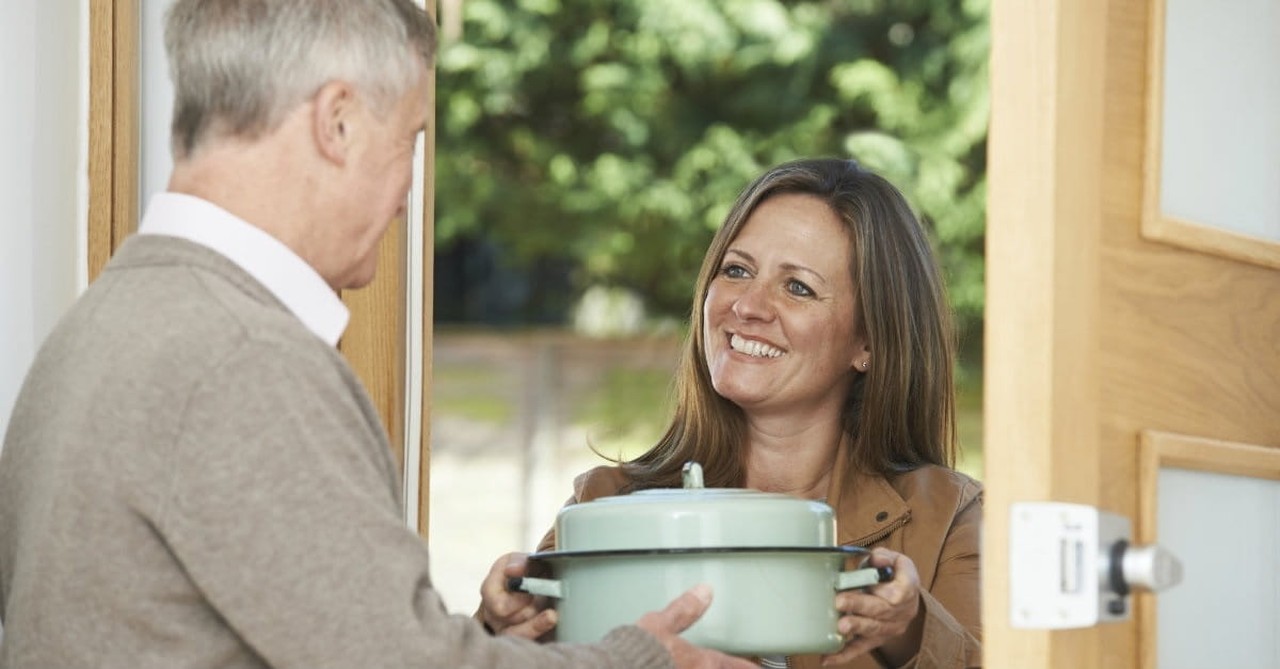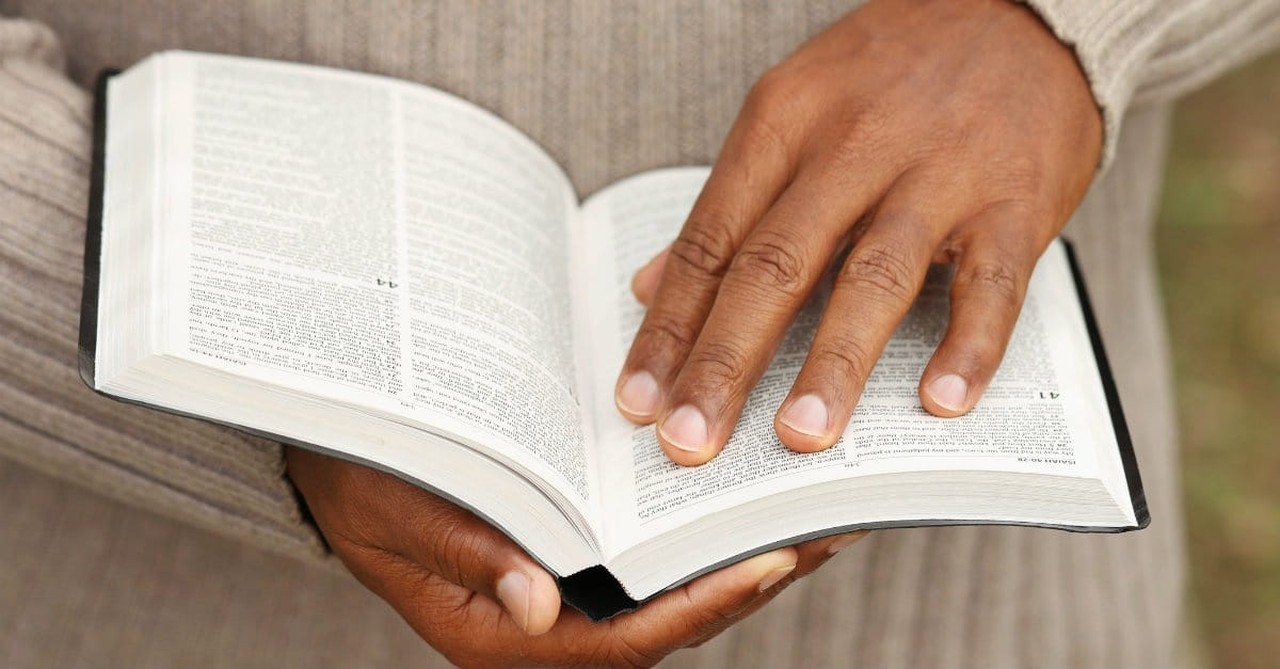
“Love your neighbor as yourself,” Jesus said (Mark 12:31).
Who among us wouldn’t agree with that statement?
When I’m sitting in a pew on Sunday and my pastor teaches that concept, I nod my head in agreement. When I’m having quiet time and I happen upon that verse, I feel confident and slightly proud. Of course I love my neighbor. God told me to.
It’s easy, right? Well, yes—until it’s not.
Because reality is rarely as simple as the theoretical. I love the idea of loving my neighbor, truly. I profess love and try to live in such a way as to practice it. I want to offer to others what God gave so freely to me.
But when I look, literally around my neighborhood, what do I see? Houses I pass every day filled with people I’ve never seen. People to nod at as we drive past, but whose names I do not know. Houses that are suddenly empty, and I can only assume someone passed away because my impression is that an elderly man once lived there, but I’m not even sure.
What kind of neighbor does this make me? I’m not wanting to beat myself—or you—up, but the truth is, we all make mistakes when trying to love our neighbor. Even if we mean well, even if we’re intentional about reaching out, there are likely things each of us could do better. Let’s look at 10 of the mistakes every Christian makes when trying to love their neighbor.
Photo credit: ©GettyImages/Daisy-Daisy
1. We forget that loving our neighbor is the second most important commandment, and we skip the first one.

1. We forget that loving our neighbor is the second most important commandment, and we skip the first one.
SLIDE 1 OF 10
“You shall love the Lord your God with all your heart, and with all your soul, and with all your mind.”
In order to love our neighbor, we must first love God with our whole selves. It is this kind of love that equips us to reach outside of ourselves to love someone else—because once we have personally been on the receiving end of the love of God, we can’t help but share it.
Photo Credit: ©Thinkstock/weerapatkiatdumrong
2. We think we're going above and beyond, when actually this was a basic, foundational instruction.

2. We think we're going above and beyond, when actually this was a basic, foundational instruction.
SLIDE 2 OF 10
It feels good to help someone, and it’s nice to get recognition. But just like a student doesn’t get extra credit for merely completing the original assignment, we don’t get bonus spirituality points when we show love to our neighbors. Jesus didn’t say this was graduate-level work; he just said to do it. None of our excuses matter.
Photo Credit: ©Thinkstock/Highwaystarz-Photography
3. We pick and choose which neighbors to love.

3. We pick and choose which neighbors to love.
SLIDE 3 OF 10
Have you ever thought, Sure, I love my neighbors—but not that one. Not the one who is difficult to love. Not the one who lives in the bad neighborhood—or a mansion. Not the one who worships another God (or none at all). Not the one who makes bad choices. Not the one who doesn’t like me, or makes me feel inferior.
If the Bible gives qualifiers like that, I’ve never seen them. Jesus continually leveled the playing field. No one sin is greater than another. If we think it, we have done it. The least are the greatest. The poorest are the richest. In God’s economy, it all balances out—and it all comes back to one thing. We cannot earn God’s love, and He withholds it from no one. So who are we to think we get to stipulate who should receive the love we have to give?
Photo Credit: ©Thinkstock/Monkey Business Images Ltd
4. We assume "love" equates to "help" or "rescue."

4. We assume "love" equates to "help" or "rescue."
SLIDE 4 OF 10
We think of our neighbors as projects rather than people, or we enter into the relationship with an ulterior motive—if I help them, they’ll have to come to church. But as a friend pointed out, “Jesus didn't heal the blind man and then say, ‘You’re welcome! And hey—I'd love it if you came by the shoreline later to hear me preach.’” When we make our love conditional, it ceases to look like the love of God.
Photo Credit: ©Thinkstock/azerberber
5. We think that loving someone involves voicing all of our convictions about their sinful life.

5. We think that loving someone involves voicing all of our convictions about their sinful life.
SLIDE 5 OF 10
God is the one who will convict someone of a sinful lifestyle or need to repent. It’s hard to convince anyone our love is genuine if it’s phrased, “I love you, BUT…” Live your life in a way that shows the generosity, kindness, mercy, and compassion of God; if you do, people will see that and will want to find what you’ve found. Live for God yourself and let the Holy Spirit work in people’s lives.
Photo Credit: ©Thinkstock/vadimguzhva
6. We ignore a need because it looks too big, or hard, or time-consuming, or complicated.

6. We ignore a need because it looks too big, or hard, or time-consuming, or complicated.
SLIDE 6 OF 10
We resist entering into someone else’s life because our own lives are messy and it’s not a convenient time. The problem with that line of reasoning is that problems don’t wait until we have time for them. And people need us now, even if it’s inconvenient.
Photo Credit: ©Thinkstock/Nastco
7. We think we have nothing of value to offer.

7. We think we have nothing of value to offer.
SLIDE 7 OF 10
8. We do it with our own power and forget to seek God's direction.

8. We do it with our own power and forget to seek God's direction.
SLIDE 8 OF 10
We don’t need to ask God if we should love our neighbor; He made that clear. But beyond that, we can show love by lifting our neighbors to God in prayer. By interceding in a way that can make a difference in even the most impossible situation. It’s not our job to guide our neighbor’s life and decisions, but we can—and should—pray about the extent of our involvement and what God is asking us to do.
Photo Credit: ©Unsplash
9. We convince ourselves that someone else will step up if we do not.

9. We convince ourselves that someone else will step up if we do not.
SLIDE 9 OF 10
One day as I prayed for a woman at my church, I said, “Lord, surround her with people who can help her.” I felt God’s reply: “You’re a person.” True, maybe someone else is better equipped or has more free time. But that doesn’t get us off the hook. If we feel that love is an obligation, we’re not truly loving. Ask God to help change your heart so that you’re connecting authentically and without reservation.
Photo Credit: ©Thinkstock/Hemera Technologies
10. We think loving our neighbor is about us, or even about our neighbors, but really, it's about God.

10. We think loving our neighbor is about us, or even about our neighbors, but really, it's about God.
SLIDE 10 OF 10
“As I have loved you, so you must love one another. By this all men will know that you are my disciples, if you love one another” (NIV, John 13:34-35). The most effective way to witness to someone is to live it, not to preach it. God changes lives, and the most powerful way to tell that story is to let other people see how He has changed you into someone more like Him.
Kelly O’Dell Stanley is the author of Praying Upside Down and Designed to Pray. A graphic designer who writes (or is it a writer who designs?), she's also a redhead who’s pretty good at controlling her temper, a believer in doing everything to excess, and a professional wrestler of doubt and faith. She blogs at kellyostanley.com and calls small-town Indiana her home.
Photo Credit: ©Thinkstock/pixelheadphoto
Originally published April 12, 2024.







